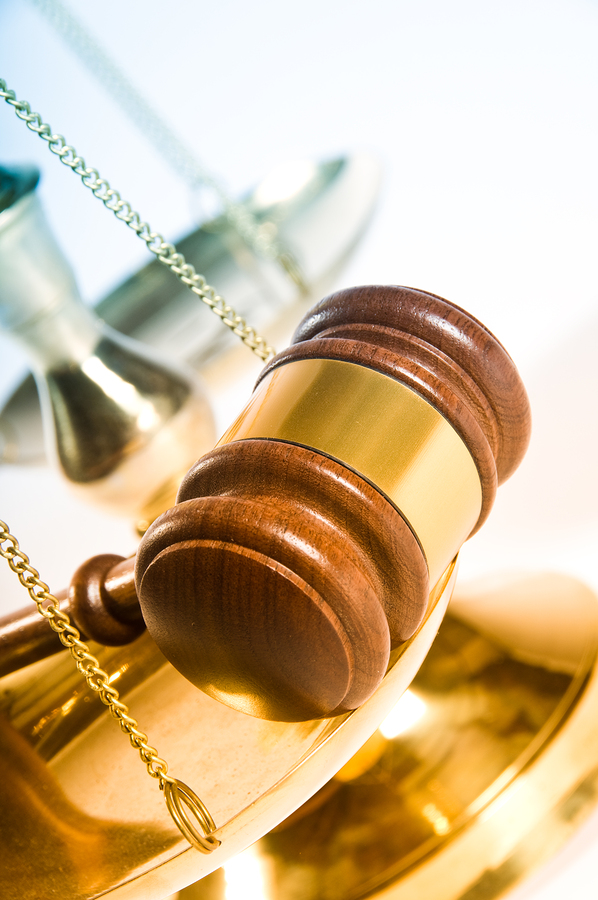
Police arrested Ryan Williams for sleeping in a Roanoke, Virginia, park bathroom where an empty beer container was found in the trash. Bryan Manning was picked up in the same city for smelling like alcohol and later for being at a Walmart where alcohol was sold. Richard Deckerhoff and Richard Eugene Walls were arrested near Richmond for being near beer cans.
In the past decade, each man has been prosecuted in Virginia at least 11 times under a state law that makes it a crime for people designated in court as "habitual" drunks to consume or have alcohol.
The four men, who according to their lawyers are homeless and struggling with alcoholism, are behind a pending federal appeals court challenge to the measure, which they say unconstitutionally criminalizes addiction and treats them differently than other heavy drinkers because they are homeless.
"These types of laws are simply an excuse to discriminate against the undesirables of society and a pretext to provide law enforcement with a tool to go after people they consider a nuisance," said their attorney, Elaine Poon, of the Legal Aid Justice Center.
"My clients suffer horribly from alcoholism, mental illness and medical problems, and putting them in jail without any treatment could actually kill them," she said.
Del. Jennifer Carroll Foy, D-Prince William, a former public defender, has tried unsuccessfully to pass legislation to repeal the measure, which she says "unfairly targets people who are homeless."
The office of Attorney General Mark Herring, a Demorcat, defended the law at the U.S. Court of Appeals for the 4th Circuit in January before a full complement of 15 judges.
"It isn't true that Virginia is simply rounding up alcoholics and putting them in jail and branding them with this tag," Principal Deputy Solicitor General MatthewMcGuire told the Richmond-based court. Law enforcement is using the provision to "try to encourage people to stop abusing alcohol and to get treatment."
Under the law, a person with a history of alcohol-related offenses may be designated through a civil hearing before a judge as a "habitual drunkard." Individuals labeled as such can then be criminally prosecuted - sent to jail for up to a year and fined up to $2,500 - for buying, drinking or possessing alcohol.
From 2007 to 2015, at least 1,220 people were tagged with the label, and the state recorded 4,743 criminal convictions of those people for consuming or having alcohol, court records show.
At the appeals court in Richmond, a three-judge panel in August initially upheld the law. Judge Harvie Wilkinson said the measure does not target homeless alcoholics but alcohol abuse generally.
"The Virginia statutes affect rich and poor alike," Wilkinson wrote. "They apply to a wide swath of society. The use of prophylactic measures to sanction relatively minor acts in order to forestall more serious criminal misconduct is hardly uncommon."
"It is the act of possessing alcohol - not the status of being an alcoholic - that gives rise to criminal sanctions," wrote Wilkinson, who was joined by Judge Paul Niemeyer.
In a separate opinion, Judge Diana Motz signed onto the judgment, but "with reluctance and regret." She had no choice, she wrote, because the three-judge panel was bound by a court ruling from 1981. Motz's opinion essentially invited challengers to seek review by a full complement of judges, the only way to reverse an earlier panel ruling.
The law is unconstitutional, she wrote, because it "effectively targets and punishes homeless alcoholics based on their illness."
"The constitutional challenge we confront today," Motz wrote, "deals only with a law that targets a group of vulnerable, sick people for special punishment based on otherwise legal behavior (drinking alcohol) that is an involuntary manifestation of their illness."
At oral arguments before the full court in January, some judges expressed concern that the law imposes penalties far beyond general restrictions on public intoxication, which result in a small fine.
Several judges also pressed the attorney general's office about what they described as a lack of clarity in the law's language. A statute can be deemed unconstitutionally "vague" if the crime isn't clearly defined and if it gives police too much discretion to apply the law.
"So it's vague if you don't have a clear definition," said Judge Stephanie Thacker.
"It is admittedly a little bit vague," responded McGuire, the state's lawyer.
"If it's a little bit vague, isn't that like a little bit pregnant?" Judge Barbara Milano Keenan asked, prompting laughter in the courtroom. "To my mind we have a vagueness problem."
In general, Wilkinson said legislators, not judges, should evaluate the effectiveness of a law. He warned that the court was "usurping the role of the General Assembly."
The court did not say when it would issue a ruling in the case.
Every weekday JewishWorldReview.com publishes what many in the media and Washington consider "must-reading". Sign up for the daily JWR update. It's free. Just click here.
(COMMENT, BELOW)


 Contact The Editor
Contact The Editor
 Articles By This Author
Articles By This Author